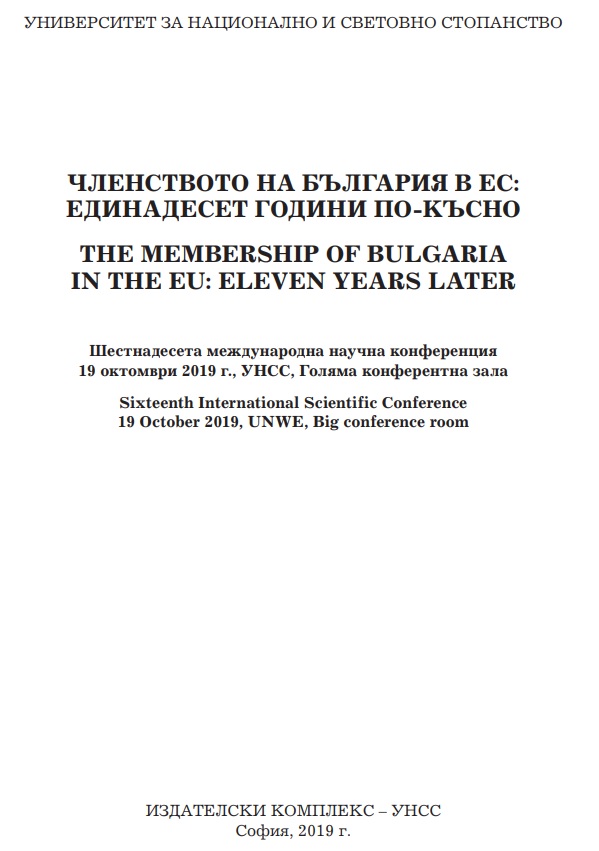An Outlook on the Changes of the External Trade Composition of Turkey with her Main European Union Trading Partners: 1996, 2017
An Outlook on the Changes of the External Trade Composition of Turkey with her Main European Union Trading Partners: 1996, 2017
Author(s): Elif Dağdemir Uçkan
Subject(s): Politics / Political Sciences, Economy, National Economy, International relations/trade, EU-Approach / EU-Accession / EU-Development, Public Finances
Published by: Университет за национално и световно стопанство (УНСС)
Keywords: External Trade of Turkey; Turkey and European Union; Trade Composition of Turkey; Turkey and European Union Customs Union
Summary/Abstract: The significant role of the external trade for an economy is incontestable. External trade not only helps to the capital accumulation for the industrialization of an economy but also generates employment. Furthermore, external trade which reflects the national production of an economy speeds up the transfer and the usage of the new technology and might increase the foreign exchange supply which is necessary for the balance of payments. Last but not least, external trade serves for enhancing political and diplomatic relations between countries. Along with the incontestable importance of increasing the volume of trade, trade composition and export diversification are as significant as the quantity for an economy. Classical trade theory as well as Heckscher-Ohlin theory that explain the gains from international trade by the static comparative advantage under perfect competition are far from conceiving today’s tangibles and the assumption of trade as an engine of growth deals with short-run economic growth. These weaknesses might be reinforced with a differentiation of trade composition and export diversification. Such a structural change on the external trade composition might then positively affect long-run economic growth. Regarding Turkey’s external trade, European Union has been the main trading partner of Turkey since the entering into force of the Association Agreement. The Association Agreement which aims the full membership of Turkey to the European Union foresees a Customs Union for industrial commodities. The Customs Union between the parties has been constructed upon three different stages, namely the Preparatory Stage, the Transitional Stage and the Final Stage. The Final Stage which reflects the readiness of the parties for the well-functioning of the Customs Union started in 1996. The aim of this paper is to analyse the changes in the composition of trade between Turkey and the main European Union trading partners and to evaluate the changes by taking into consider 1996 and 2017. The conclusions of this paper would give us the opportunity to discuss the actual as well as potential trade composition and export diversification of Turkey at the Final Stage of the Customs Union and might lead to further studies which examine the relationship between export diversification and long-run economic growth.
Book: Членството на България в Европейския съюз: единадесет години по-късно
- Page Range: 147-163
- Page Count: 17
- Publication Year: 2019
- Language: English
- Content File-PDF

